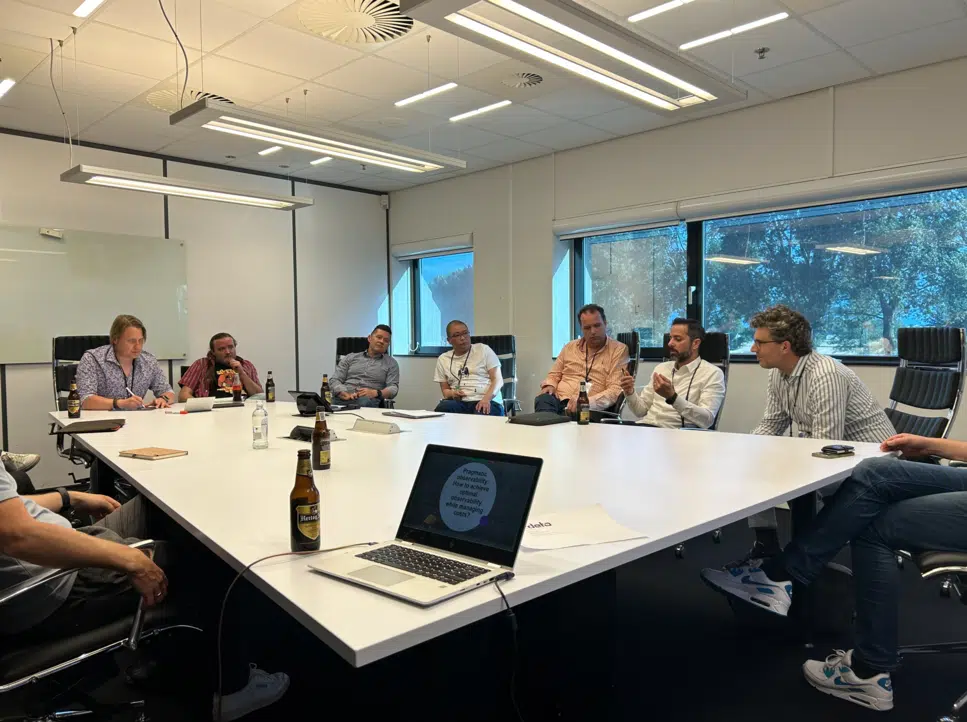In the latest in our Talent Leaders Q&A series, specialist consultant, Adam Elliott-Smith, speaks with Jamie Dillon, Talent Acquisition Specialist at Tide, a UK-based financial technology company that provides mobile business banking services to small and medium-sized enterprises.
Jamie discusses the importance of the candidate experience, how the world of recruitment is changing and how he and his team at Tide are tackling sourcing and attracting technical talent in today’s increasingly competitive and digital market.
Third Republic (TR): Would you agree with the statement that ‘the recruitment model is broken’? If so, why?
Jamie Dillon (JD): In the traditional sense yes, there is a disconnect between candidates today in terms of their expectations about the hiring experience. 9 times out of 10 there are bad experiences and horror stories.
Many companies still don’t place enough value on the candidate experience and fail to manage expectations. They get it wrong through not managing the hiring process correctly, by not giving feedback and not being time efficient. This then triggers candidates to share their experiences with others in their network, which becomes detrimental to both the brand and reputation.
TR: How have you seen candidate behaviours change during your career?
JD: In the current market, I have seen candidates wanting more autonomy and accountability over their work. Flexibility and job control are becoming increasingly more important to candidates – sometimes even more so than salary.
It is likely that corporate companies who are unable to be as agile and accommodating, will struggle to hire these kinds of candidates.
TR: Do you believe that technical candidates, such as DevOps engineers, are harder to source?
JD: Overall yes, they are more difficult to source, however I would say hiring skills across the technical landscape has become more of a challenge. It’s not just about sourcing either, engaging tech candidates is equally as challenging.
In order to source, engage, and hire technical talent with the right skillsets, I think it’s very important to make your story compelling, it’s half the battle when attracting the top talent. The key is building relationships with candidates and using a creative strategy to maximise engagement.
It is a competitive market, the demand for the best people is through the roof, and talent teams should be focused on sourcing and attracting these candidates. There’s certainly no problem with using LinkedIn, but where is the community? Getting into these pockets of talent and building this network up is the preferred option.
TR: How do you currently overcome these issues at Tide?
JD: Taking the time to build out a hiring strategy and focusing on acquiring skills across the business is key for us. We sit down and evaluate which channels are going to help us maximise this process, once established we look to build candidate pipelines for later in the year. We map out strategic objectives to engage the right talent and try to maximise face-to-face time. We also place emphasis on marketing, using specific and targeted campaigns in order to attract talent.
TR: Are there any particular tools or technologies you use to overcome these challenges at Tide?
JD: Yes, we use a number of different tools depending on the type of resource. For example, we work with Hired, we find the platform useful as candidates can approach us which allows for a more direct line of sourcing. We also use more standard sourcing tools, for example, we find that LinkedIn is still one of the best platforms for sourcing skillsets, such as Java Engineers, predominantly due to the sheer volume of people using the site.
TR: What emerging trends are you seeing in the talent acquisition industry?
JD: There is a convergence of platforms, companies utilising technology tools across a wide range of websites. The rise in tech is definitely having a huge impact in many ways, specifically socially. Firms are going to have to expand their searches and follow trends in tech closely in order to ensure they remain relevant in today’s digital landscape. There is a lot of competition out there, and firms are beginning to adapt and utilise methods to streamline processes and provide candidates with a better
more tailored experience.
TR: Finally, why do you think candidate experience is king?
JD: The candidate experience is so important! Especially when you’re hiring into your own company, we as the employer, are in control of their experience. If the candidate experience is not treated with care, then it can cause a ripple effect and create a bad reputation across the market.
At Tide, we are experiencing high growth, so that very last thing we want, is to put people off when expanding. We take care to provide all potential future employees with the best experience possible, whether they are successful in the process or not – feedback is key.





